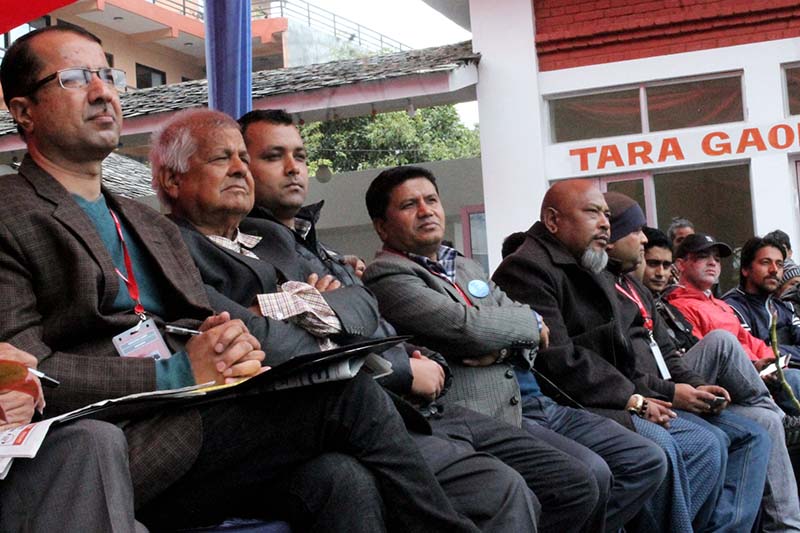Literature festival begins in Pokhara
Pokhara
Pokhara is a beautiful literature in itself — mountains and rivers, fields and streams, lakes and forests, roads and pathways, towns and villages make sentences and stanzas of this literature. They teach us to live and laugh, and they even teach those willing to write. And the sixth edition of the four-day Nepal Literature Festival began in this nature's literary creation, Pokhara, on January 27. Held in Kathmandu till its fourth edition, the festival is being held in Pokhara since last year.
Litterateur Dhruba Chandra Gautam inaugurated the festival on the premises of Nepal Tourism Board (NTB) at Pokhara's Pardi. He told that such a programme would help promote Nepali literature.
The Chief Executive Officer (CEO) of NTB Dipakraj Joshi said that development of language and literature would offer quality contribution to the development of tourism.
Organiser Ajit Baral said that presence of the litterateurs had encouraged them to hold the festival in the Lake City.
Around 100 speakers, writers, sociologists, politicians, critics, among others, are discussing various issues in 40 sessions. And for this many litterateurs, critics, writers and artists have already arrived in the Lake City.
The discussion on books and contemporary issues has served as a bridge to connect writers and readers in a single forum. Thus, the event participants felt that the festival has helped narrow the gap between writers and readers.
Litterateur Amar Neupane said the festival had provided an opportunity for readers and writers to meet and talk face-to-face.
The discussion is not confined to literature alone. Experts on journalism, movies, dramas, sociology, and political science talked about multiple issues and contexts facing the country and world. Chief speaker, educationist Kedarbhakta Mathema said that political meddling had become a major problem in Nepal's education system. He expressed his concern over the lack of teaching pedagogy that would enable primary to university level students to be creative and to ask questions.
Rabindra Adhikari, President of Parliamentary Committee on Development, argued that the infrastructure development alone could not be considered the base of development.
The participation of foreign writers has, no doubt, increased the pride of the festival.






